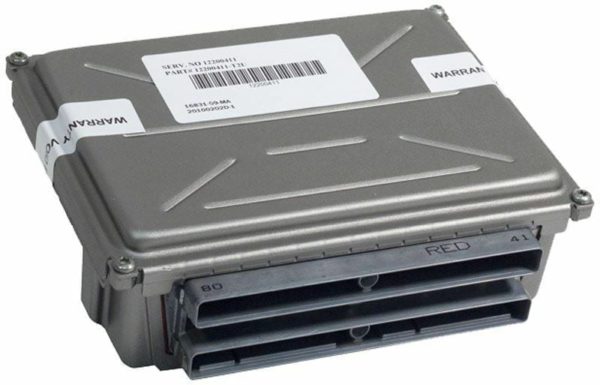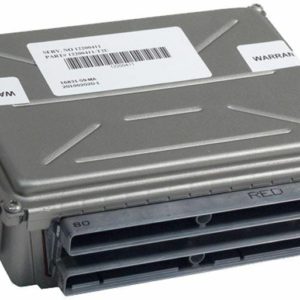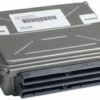Is Your 2001-2002 GM Truck or Van Acting Possessed?
If you’re dealing with a vehicle that seems to have a mind of its own, you’re not alone. In my 20+ years spinning wrenches and diagnosing electrical gremlins, the Powertrain Control Module (PCM) is often the ghost in the machine for this generation of GM vehicles. Maybe your Express 3500 work van is suddenly stalling at intersections, your Silverado is shifting hard into second gear, or your Tahoe refuses to start on random mornings. These aren’t just annoyances; they’re symptoms of a failing vehicle brain.
A Technician’s Real-World Story
“A customer’s 2002 Express 3500 came in last week with these exact symptoms. The van, a plumber’s workhorse, was experiencing intermittent no-starts and had a check engine light with a laundry list of unrelated codes—misfire, lean bank, O2 sensor, you name it. A less experienced tech might have started throwing sensors at it, costing the customer a fortune. But I’ve seen this movie before. We connected our high-level scan tool and saw communication dropouts with the PCM. That’s the tell-tale sign. The internal processors were failing under heat, causing system-wide chaos. We installed one of our VIN-programmed PCMs, performed the quick security relearn, and the van ran like it just rolled off the factory floor. All the ghost codes vanished because the brain was healthy again.”
The Core Problem: Why These PCMs Fail
The PCM in your 2001-2002 GM vehicle, whether it’s an Express van, a Sierra pickup, or even a Corvette, is constantly working. It lives in a harsh environment, exposed to intense heat cycles and engine vibration. Over two decades, this takes a toll.
- ✔ Heat Damage: The constant heating and cooling can cause microscopic cracks in the solder joints on the circuit board, leading to intermittent connections.
- ✔ Vibration Fatigue: Components can literally shake loose or develop connection issues over hundreds of thousands of miles.
- ✔ Voltage Spikes: A failing alternator or a jump-start gone wrong can send a surge of voltage that damages the sensitive internal electronics.
- ✔ Corrosion: The location on many of these vehicles (under the battery tray) makes them susceptible to moisture and battery acid leaks, which corrode the pins and connectors.
When the PCM starts to fail, it can’t properly interpret sensor data or send the right commands to the engine and transmission. This leads to the frustrating, hard-to-diagnose problems you might be experiencing.
The Direct-Fit, Programmed Solution
This isn’t just a replacement part; it’s a complete solution. We take a genuine, tested PCM and program it specifically for YOUR vehicle using the VIN you provide. This is a critical step that many sellers skip.
- ✔ VIN-Specific Programming: We flash the module with the latest official GM software calibration for your exact vehicle. This ensures compatibility with your engine, transmission, and all factory options.
- ✔ Updated Software: GM often releases software updates to fix bugs and improve performance that were present when the vehicle was new. You get these latest updates pre-installed.
- ✔ Plug-and-Play Design: Because it’s programmed before it ships, the installation is straightforward. In most cases, you’ll simply install the module and perform a security relearn procedure (often called a Passlock or VATS relearn), which takes about 30 minutes and requires no special tools.
- ✔ Guaranteed Compatibility: This module is a direct replacement for part numbers 12200411, 12201281, 12576160, and 52369718. Check the label on your current PCM to confirm.
Confirm Your Fitment
This PCM is the correct computer for a wide range of 2001-2002 GM models, including the Express 3500, Silverado, Sierra, Tahoe, Yukon, Suburban, and many others. Please refer to the detailed fitment list to ensure it matches your specific vehicle and options. The location can vary from being under the battery to the rear of the engine compartment, so verifying your old part number is the best way to guarantee a perfect match.


